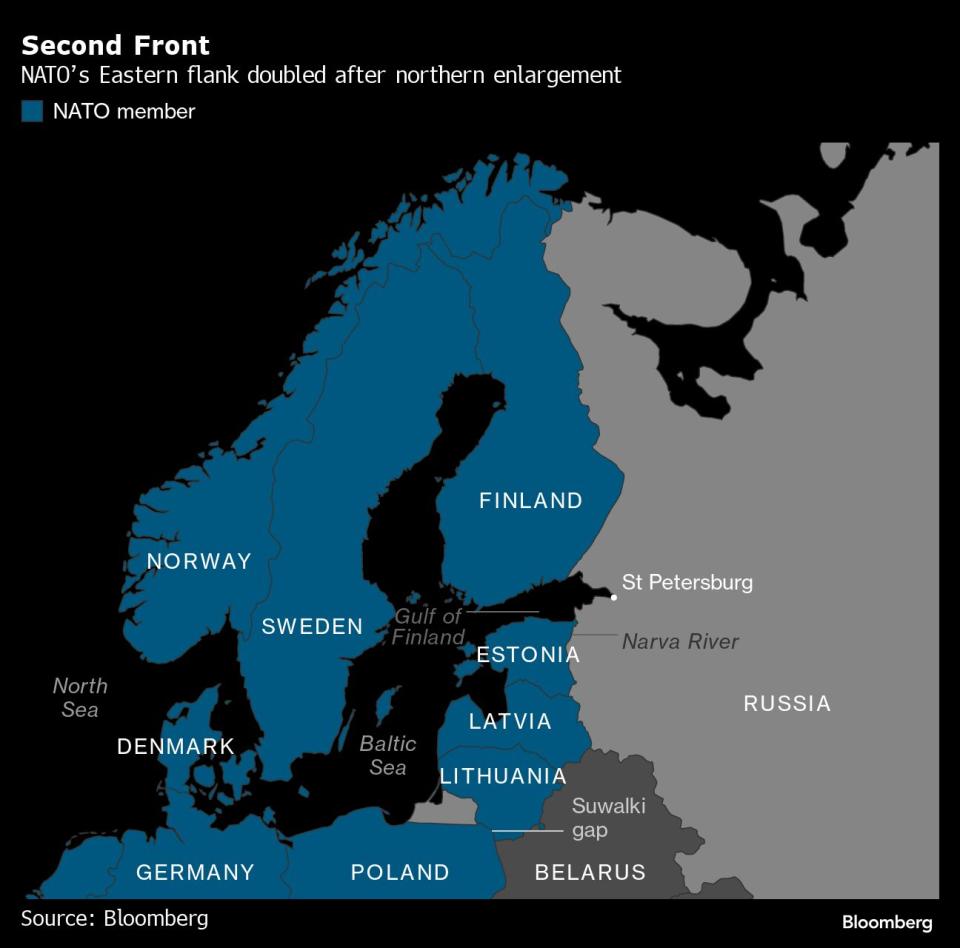Russia Used Exclave of Kaliningrad to Disrupt EU Satellites

(Bloomberg) -- Russia has been using Kaliningrad, its exclave that borders Poland and Lithuania, as one of its bases to disrupt European Union satellite systems, according to a United Nations agency that oversees communications technology.
Most Read from Bloomberg
Biden’s Fourth of July Shrouded by Pressure to Drop 2024 Bid
Kamala Harris Is Having a Surprise Resurgence as Biden’s Campaign Unravels
Newsom Shocks California Politics by Scrapping Crime Measure
China Can End Russia’s War in Ukraine With One Phone Call, Finland Says
Russia should “immediately cease any deliberate action to cause harmful interference to frequency assignments of other administrations,” the International Telecommunications Union’s Radio Regulations Board said Monday in a summary of its meeting last week.
The findings were based on geolocation of the disruption signals, which the board called “extremely worrisome and unacceptable.”
European satellite companies have been targeted by Russian radio frequency interference for months, leading to interrupted broadcasts and, in at least two instances, violent programming replacing content on a children’s channel. Complaints by several NATO members previously said the disruptions came from mainland Russia and occupied Crimea.
Kremlin spokesman Dmitry Peskov said he is unaware of the board’s claims, according to state-run news agency Tass.
Kaliningrad is a heavily armed territory separated from Russian ally Belarus by the Suwalki Gap, a corridor along the border of Poland and Lithuania that, if severed, would cut off the Baltic states’ land access to the rest of NATO.
The regulation board said the latest disruptions came from Russian locations including Kaliningrad and Moscow. The interference primarily affected TV and radio channels with Ukrainian content, according to the report.
Several countries, including Sweden, France, Ukraine and the Netherlands, had appealed to the board about the issue. Russia has increasingly sought to disrupt European communication systems since the 2022 invasion of Ukraine, as it tests the preparedness of the EU and NATO.
Russia didn’t reply to the findings, according to the board’s report. In response to a previous French complaint, Moscow said it sought to identify the sources of interference “but had not detected any emission that could cause harmful interference.”
(Updates with Kremlin spokesman in fifth paragraph.)
Most Read from Bloomberg Businessweek
Dragons and Sex Are Now a $610 Million Business Sweeping Publishing
The Fried Chicken Sandwich Wars Are More Cutthroat Than Ever Before
For Tesla, a Smaller Drop in Sales Is Something to Celebrate
©2024 Bloomberg L.P.

 Yahoo Finance
Yahoo Finance 